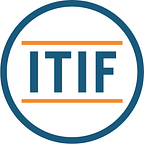Pill.AR: Printing Personalized Medicine with MESO-PP
This post is one of a series in the #Innovate4Health policy research initiative. #Innovate4Health is a joint research project by the University of Akron IP Center (UAIP), the Information Technology & Innovation Foundation (ITIF), and the Geneva Network. This project highlights how intellectual-property-driven innovation can address global health challenges. If you have questions, comments, or a suggestion for a story we should highlight, we’d love to hear from you. Please contact UAIP Research Fellow Douglas Park at dpark@uakron.edu for more information.
Douglas Park
Medication typically follows a “one-size-fits-all” paradigm which does not always meet patients’ unique needs. Aside from dosage and frequency, every patient receives the same drugs for the same conditions even though no two patients are identical. Despite its efficiency, the “one-size-fits-all” paradigm poorly suits many patients.
This paradigm for medication makes less sense when one considers that other treatments are more individualized. No surgery is exactly like another, and prosthetics must be highly personalized to avoid orthopedic distress. Similarly, differences among patients — e.g., genetics, other medications, personal circumstances — make standardized pills and other dosage forms less than optimal.
Innovators are now rising to the challenge of personalizing medication, and Argentinian startup Pill.AR has developed a promising solution. Personalized medications are custom-tailored to meet the specialized needs of individual patients. One innovation to personalize medication is using three-dimensional (3D) printing to produce small-batch, customized medications. Pill.AR has developed a particularly promising method for 3D printing medication, the Melting Solidification Printing Process (MESO-PP), a novel way to produce small batches of medications.
More customized medication offers many benefits that would improve treatment for patients globally. For example, some people have adverse reactions to the form of or inactive ingredients in topical medications for skin conditions such as skin atrophy and hormonal imbalances. Personalized medication can avoid such problems by customizing doses based on an individual patient’s present condition, other medications, and genetic profile. Customization has many benefits including greater safety, efficacy, cost-effectiveness, and better rates of patient compliance.
Because conventional pharmaceutical manufacture is geared toward large batches and is therefore not well suited to personalized medicine, 3D printing is a popular choice for producing small-batch medicines.
However, 3D printing has its limitations, too. Many printing materials have not yet been approved for human use, and most printing methods require solvents or high temperatures that risk damaging the medicinal content. Many of these methods also require specialized operation such as loading plastic filament, formulating gels, controlling flow of powder, or drying forms.
To address these issues, Pill.AR designed their MESO-PP technique for printing medications. MESO-PP uses a pre-mixed solid material as a substrate that can be stored for later use as necessary. The substrate is then heated to a temperature no greater than 60 degrees Celsius, where it liquefies and the medication is added. The mixture can then be extruded into the desired shape and size as appropriate for the personalized medication plan.
Pill.AR describes numerous advantages to its MESO-PP process. The technique does not use any solvents that could destabilize the drug or impose additional costs for drying, and it avoids the use of potentially hazardous resins. It uses a relatively low temperature that allows production of increasingly commonplace thermosensitive drugs. Most import to the accessibility of personalized medicine, MESO-PP does not require specialized processes and uses cheap and portable printers that are relatively simple to operate.
Pill.AR describes opportunities to improve patient compliance as the main advantages of MESO-PP. Medication can be printed with pleasant flavors, bright colors, or novel shapes to make them more palatable to children. The printed forms can contain personalized combinations of drugs, vitamins, and nutraceuticals, substantially simplifying a patient’s daily medication regimen. The pills can even be printed around diagnostic devices to facilitate patient monitoring, and the printing process can be automated to improve efficiency and minimize upkeep costs.
The company hopes to address a local concern with their invention. According to Pill.AR, less than 10% of Argentina pharmacies produce individualized medicine forms, in large part due to legislative restrictions on the preparation and storage of medications. MESO-PP will enable community pharmacies to produce personalized medicines for their patients without expensive equipment or extensive training, making effective medication accessible for lower-income communities. Pill.AR also believes that the production process will remove a substantial amount of packaging involved with the blister packs normally used for medication, thus limiting the generation of waste.
Intellectual property protections were a key enabler of Pill.AR’s efforts. Pill.AR describes the company as “born from” its patent on MESO-PP secured through the Argentinian IP system.
Patent rights are essential to protect investments in innovative manufacturing processes such as this. A great virtue of MESO-PP is that it is an accessible and affordable solution using standard equipment, but that virtue makes it all too easy to duplicate. Innovators such as Pill.AR’s founders could not justify investing the time and money of themselves and investors without the security of IP rights.
Fortunately, IP rights have provided the foundation Pill.AR needed to proceed from the idea of accessible printed medicine to the practical reality of MESO-PP. The innovation promises to help many patients in Argentina and around the world.
